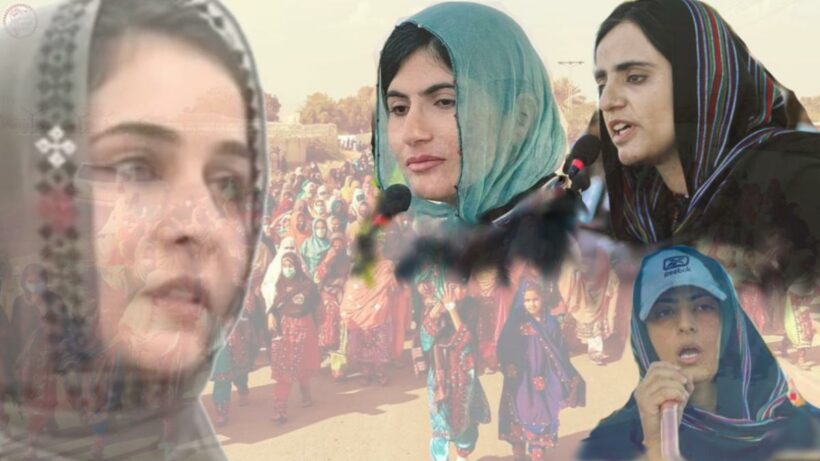In the barren, conflict-ridden landscape of Balochistan, a new political force is emerging, with the enthusiastic involvement of youth and the prominent presence of young women at the forefront. This change represents not only a change in leadership but also a change in the nature of Baloch political resistance. Armed with a modern understanding of socio-political dynamics and a relentless drive for justice, Baloch youth are redefining the struggle for rights.
By Basit Zaheer Baloch
The youth of Balochistan have grown up in a region that has suffered decades of political neglect, economic deprivation and social injustice. Their experiences have produced a generation that is acutely aware of the systemic problems facing their homeland. Unlike previous movements, this new wave of resistance is characterized by its inclusiveness and innovation. Young leaders are not only demanding political autonomy and economic justice, but also addressing broader social issues such as gender equality, education and healthcare.
Perhaps the most important development in this political renaissance is the prominent role of young women. In a society traditionally dominated by patriarchal norms, the emergence of women as key figures in political resistance is both revolutionary and inspiring. These women bring unique perspectives and deep empathy born from their personal experiences of marginalization. They are uncompromising in their demands for justice and are committed to improving the lives of their people.
Young women like Dr. Mahrang Baloch, Sammi Deen Baloch and Bebo Baloch have become symbols of resilience and courage. Their activism highlights the intersectional nature of the struggle in Balochistan, where issues of gender, ethnicity and socio-economic status are intertwined. His leadership is not only about political demands but also about challenging and changing the basic structure of Baloch society
is also about
Karima Baloch, a prominent activist for Baloch rights, played a significant role in inspiring and mobilizing Baloch women within the Baloch national movement. As one of the leading figures in the struggle for Balochistan, Karima Baloch’s activism and leadership brought significant attention to the plight of the Baloch people, particularly highlighting the role of women in this movement. Her dedication and bravery have empowered many Baloch women to step forward and take active roles in advocating for their rights and the rights of their community. The current visibility and participation of Baloch women on the frontlines of the movement can be largely attributed to the groundwork laid by Karima Baloch.
The new leaders of Baloch politics are deeply connected with ground realities. He understands the sufferings of his people not only from an ideological point of view but also from lived experience. This connection lends a deep legitimacy to their cause, making their grievances impossible to ignore. They highlight issues such as enforced disappearances, military operations, and exploitation of natural resources, which have long caused suffering for the Baloch people.
The rise of youth and women in Baloch politics is a ray of hope for a long conflict-ridden region. His leadership offers a new narrative, one that is inclusive, progressive, and firmly rooted in the principles of justice and equity. The resilience and dedication of Baloch youth and women have set the stage for a possible transformation, promising a brighter future for Balochistan and its people.
Basit Zaheer Baloch, Political worker, Human Rights activist, and writer.
Facebook: basit.zaheer.94






